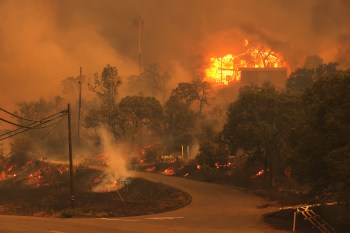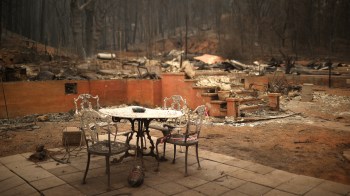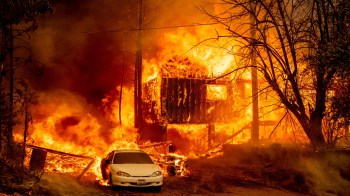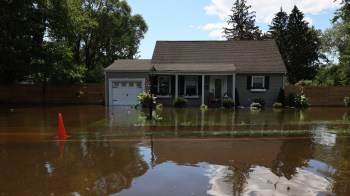Insurance companies getting into the firefighting game
The western United States is in a drought and it’s been hot and windy in southern California over the last few weeks. Wildfires love these conditions, which means more property is at risk of damage or destruction. Insurance companies are well aware of this, so they’re expanding homeowners’ insurance packages essentially to include firefighters.
Residents in upmarket neighborhoods like Malibu or Bel Air might already know this but, for everyone else, here’s the deal: homeowners’ insurance for really rich people is different. AIG is one provider that offers insurance for, “high net worth individuals and their families.” One of the protections is the Wildfire Protection Unit. AIG is quick to note this is not a private fire department, but in some ways it is. Patrick Titus, Operations Section Chief on an incident management team in California, said the role of the private firefighters could cause a problem.
“They’re not in the know,” he said. “They are just there as a hired service by the insurance company to take care of that piece of property, so that’s where you get into the life safety issue with the public and everybody else, is them not being involved directly.”
Titus said it could lead to confusion among the public. A guy in a helmet and boots driving an engine to one particular house to put flame retardant on it sends a peculiar message. But he also said an insurance company’s willingness to help isn’t a bad thing.
“You know there’s never enough resources when there’s a lot of fires going on,” he said. “So, in that regard, it’s a benefit because they’re in there taking care of their clients and taking care of their structures and it’s one less thing we have to worry about.”
Insurance companies aren’t doing this out of kindness. It makes business sense. Jim Salek, vice president of underwriting programs at USAA, said most of the homes they insure are everyday suburban houses, not the ones on a cliff in the Santa Monica Mountains.
“Let’s face it, it’s less expensive to prevent,” he said.
Salek said this service isn’t an effort to boost overall wildfire suppression. They’re contract crews are only out to protect homes with their policies, which could put those crews in a tough situation if a fire makes a turn.
“So, what would happen in a specific situation? I don’t know for sure,” he said. “But their main focus is on responding to our members’ policies.”
USAA contracts with a firm called Wildfire Defense Systems (WDS). All of their employees are private contractors. David Torgerson, president of WDS said they’re not really set up to be first-responders to a wildfire.
“Although all these resources are trained and hired by the government to do initial attack and fight fire on the fire line, these insurer programs are more working to be more in the background,” he said. “They’re working before the fire and after the fire doing supplemental roles to prepare the structures to be more survivable, and then check on them very quickly after the fire passes”
The insurance teams aren’t there to protect lives, they’re there to protect property.
Kyle Dickman worked for the US Forest Service for a few years and now writes about fires. He said firefighting is becoming more and more privatized, but he thinks it makes sense, especially as people continue to build houses in dangerous spots.
“If you make all of those choices and then expect the Forest Service or BLM or your city or county firefighter to risk their lives to save your home from a wildfire that is going to happen every year or every ten years or every fifteen years I think that’s not a realistic expectation,” he said.
Many firefighters told Marketplace they think insurance companies getting into the game is not necessarily a bad thing, it just has to be controlled.
There’s a lot happening in the world. Through it all, Marketplace is here for you.
You rely on Marketplace to break down the world’s events and tell you how it affects you in a fact-based, approachable way. We rely on your financial support to keep making that possible.
Your donation today powers the independent journalism that you rely on. For just $5/month, you can help sustain Marketplace so we can keep reporting on the things that matter to you.

















